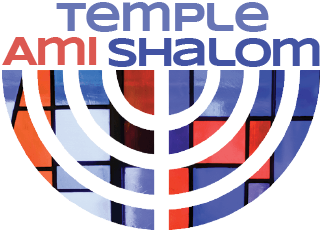Rabbi’s message
Shavua tov to all…and Chodesh Nissan tov, too, on Wednesday night and Thursday!!
What a week!! I had no idea what effect our ZOOM services on Shabbat would have on me and on our community…no idea what-so-ever. I had only ever participated in a ZOOM lecture and it was ok. Our service was put together very quickly, mostly thanks to Rabbi Avivah and Cantor Mike. As I was sitting in my living room, there was a quick conversation between Reb Avivah and Cantor Mike and me, and then poof…we were all together. And what a wonderful experience.
It wasn’t only the amazing ability to share a service on our computers but also being able to share our singing and davening and discussions was fantastic. And, being able to look on my computer screen in Laguna Woods and see people in the entire range of the San Gabriel Valley, Los Angeles and congregants who have moved far from our community even to Cleveland, Ohio.
And that is what community is ALL about…in a very real way the challenges that all of us are going through, in our families, our schools, our neighborhoods, our friendships, have brought the importance of community into all of our lives, all of our lives. Saturday brought our community together. I have never felt more comfortable or connected with this special community than on Shabbat morning. We will continue to come together on Friday nights and Shabbat mornings for as long as we find ourselves in this challenging situation.
And now on to this week’s parasha, Va-Yikra, Leviticus. Why is this book in the center of the Torah? It is the least “historical” of the books, it doesn’t really continue the story of the Israelites in the wilderness. And yet, about half of the mitvzot, commandments, in the entire Torah appear on this book. Most of those mitzvot deal with sacrifices and the duties of the Priests, the Levites, thus the English name for this book, Leviticus.
I am going to share a very descriptive paragraph about this week’s portion which reflects on the book of Va-Yikra, taken from our Etz Haim chumash that is used in the majority of Conservative congreagations. I’d like to discuss this selection on Shabbat morning during our ZOOM services…
“The modern temper tends to discount prescribed ritual in favor of spontaneous religious expression. Yet something in the human soul responds to ritual, whether it be the formality of a traditional wedding or the rituals of a sporting event or a public meeting. There is something comfortable about the familiar, the recognizable, the predictable. There is something deeply moving about performing a rite that is older than we are, one that goes back beyond the time of our parents and grandparents. At crucial times, it is important for us to know that we are “doing it right”. There is power in the knowledge that we are doing what generations of people before us have done in similar situations, something that other people in other places are doing at the same time and in the same way. And rituals, including prescribed prayers, tell us what to do and say at times when we cannot rely on our own powers of inspiration to know what to do or say. “Ritual is a way of giving voice to ultimate values. Each of us needs a sense of holiness to navigate the relentless security of our lives.”(Schorsch) For the Israelites in Biblical times, it must have been gratifying to know what to do when they wanted to approach God at critical moments of their lives, in need or in gratitude.”
I look forward to discussing this beautiful expression of how our tradition has handled difficult times in the past and how we, today, can use those same traditions during our own challenging times.
Early Shabbat shalom and I encourage all of our Temple Ami Shalom community, whether you are a “regular” Shabbat attendee, a “once in a while” attendee, or a High Holy Day attendee, to please join us on Friday night and Shabbat morning as we ZOOM together to unite in celebrating Shabbat together!! Rabbi Ralph
